Creative Writing

How might AI influence creative industries like music, art, and writing ?
AI is transforming creative industries, enhancing and augmenting the creative process. It influences music production, art generation, and writing by offering tools for composition, sound design, mixing, generative art, content generation, and real-time translation. AI also assists in music recommendation, art analysis, and proofreading. Despite its potential, AI should complement human creativity, as art's essence lies in unique perspectives and emotions that only humans can provide.

What strategies can I use to overcome creative blocks ?
Overcoming Creative Blocks: Strategies and Techniques Creative blocks can be frustrating, but they're a common occurrence for many people. Fortunately, there are several strategies you can use to overcome them. In this article, we'll explore some of the most effective techniques for getting your creativity flowing again. Understanding Creative Blocks Before diving into strategies, it's important to understand what causes creative blocks. Here are some possible reasons: - Lack of inspiration - Fear of failure - Perfectionism - Stress and fatigue - Routine Strategies for Overcoming Creative Blocks Now that we know some potential causes, let's look at strategies for breaking through those barriers. Change Your Environment Sometimes a change of scenery is all it takes to spark new ideas. Try working in a different location, such as a coffee shop, library, or park. Even rearranging your workspace can help stimulate creativity. Take Breaks and Rest It's essential to give your mind time to recharge. Step away from your work and engage in activities that relax you, like taking a walk, meditating, or listening to music. Often, solutions come when you're not actively trying to find them. Set Small Goals Breaking down a large project into smaller, manageable tasks can help alleviate feelings of overwhelm. Focus on one small aspect at a time and celebrate each accomplishment. Embrace Imperfection Remember that creativity doesn't have to be perfect. Give yourself permission to create something messy or incomplete. You can always refine it later. Collaborate with Others Working with someone else can bring fresh perspectives and ideas. Brainstorm with friends, colleagues, or an accountability group. Their input might be just what you need to break through your block. Practice Mindfulness and Meditation Mindfulness exercises and meditation can help clear your mind and reduce stress, making it easier to access your creative thoughts. Even a few minutes of deep breathing can make a difference. Engage in Other Creative Activities Sometimes engaging in another form of creativity can spark ideas for your main project. Try drawing, writing poetry, or playing music – anything that gets your creative juices flowing. Use Writing Prompts or Creative Exercises Writing prompts or creative exercises can provide structure and guidance when you're feeling stuck. These can be found online or in books dedicated to helping artists and writers overcome blocks. Seek Inspiration from Other Art Forms Look at art, listen to music, watch movies, or read books in genres different from your own. Exposure to other forms of creativity can inspire new ideas and approaches in your own work. Keep a Journal or Sketchbook Regularly recording your thoughts, dreams, and ideas can help you tap into your subconscious mind. A journal or sketchbook becomes a repository for potential projects and solutions to creative blocks.

How do athletes use their experiences in sports to inspire their writing ?
Athletes often draw from their experiences in sports to inspire their writing. Here are some ways in which they do so: 1. Overcoming Adversity: Athletes face numerous challenges and setbacks throughout their careers, such as injuries, losses, and pressure to perform. These experiences can serve as powerful sources of inspiration for their writing. They can share stories of how they overcame these obstacles and the lessons they learned along the way. 2. Teamwork and Collaboration: Sports often require teamwork and collaboration, which can translate into valuable insights for writing about relationships, communication, and leadership. Athletes can write about the importance of working together towards a common goal, trusting one another, and supporting each other through difficult times. 3. Discipline and Perseverance: The discipline required to excel in sports can be applied to other areas of life, including writing. Athletes can write about the value of perseverance, dedication, and hard work, and how these qualities have helped them achieve success both on and off the field. 4. Mental Toughness: Sports often test an athlete's mental toughness, requiring them to stay focused, motivated, and resilient in the face of adversity. These experiences can provide valuable insights for writing about resilience, determination, and overcoming self-doubt. 5. The Pursuit of Excellence: Athletes strive for excellence in their chosen sport, constantly pushing themselves to improve and reach new heights. This pursuit of excellence can inspire writers to strive for greatness in their craft, always seeking to refine their skills and create something truly exceptional. 6. Embracing Failure: In sports, failure is inevitable. Athletes learn to embrace failure as an opportunity to learn and grow, rather than a reason to give up. This mindset can be incredibly valuable for writers who may face rejection, criticism, or creative blocks. By embracing failure as a necessary part of the process, athletes can inspire writers to keep pushing forward despite setbacks. 7. Finding Inspiration in Routine: Athletes often have rigorous training routines that require them to push themselves physically and mentally every day. This disciplined approach to daily practice can inspire writers to establish their own routines and rituals that help them stay focused, productive, and creative. 8. The Power of Mindset: The mindset required to succeed in sports can also be applied to writing. Athletes must believe in their ability to achieve their goals, even when faced with seemingly insurmountable challenges. This positive mindset can inspire writers to believe in their own abilities and persevere through difficult times. 9. Celebrating Triumphs: Finally, athletes often celebrate their triumphs and accomplishments, no matter how small they may seem at the time. These moments of joy and pride can serve as powerful reminders for writers that every step forward is worth celebrating, and that progress comes from consistent effort and dedication over time.
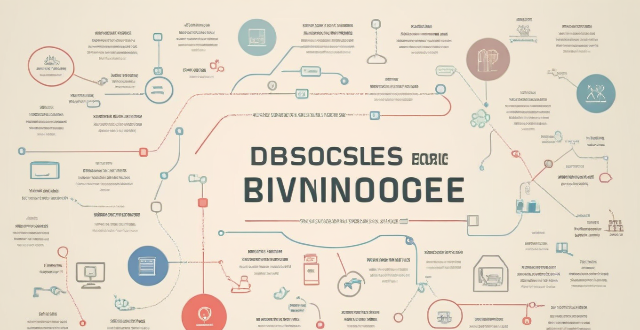
What is the difference between academic and non-academic writing ?
The article discusses the differences between academic and non-academic writing in terms of purpose, audience, style, structure, and language features. Academic writing aims to convey complex ideas and research findings to a specialized audience using formal, objective, and precise language, while non-academic writing focuses on informing, entertaining, or persuading a general audience using informal, subjective, and general language. The structure of academic writing is rigid and includes detailed analysis and extensive citations, whereas non-academic writing has a flexible structure, narrative style, and limited references. Language features also differ, with academic writing using complex sentences, passive voice, and abstract concepts, while non-academic writing prefers simple sentences, active voice, and concrete examples.

How can I create an environment that encourages creative expression ?
Creating an environment that encourages creative expression is essential for fostering innovation, personal growth, and problem-solving skills. Here are some tips on how to create such an environment: 1. Set the tone by making everyone feel comfortable sharing their ideas and opinions without fear of judgment or criticism. 2. Provide opportunities for self-expression through various forms of media, such as writing, drawing, music, or dance. 3. Foster collaboration by encouraging teamwork and brainstorming sessions where everyone feels valued and heard. 4. Create a safe space where people feel comfortable taking risks and making mistakes. 5. Offer incentives and recognition to motivate individuals to continue exploring their imagination. 6. Provide resources and tools that support creative expression, such as art supplies, software, or access to workshops and training programs. 7. Encourage time for reflection and inspiration by providing regular breaks, mindfulness exercises, or a quiet space for contemplation. 8. Promote diversity and inclusion to encourage different perspectives and ideas, leading to more creative solutions.

How do I develop a unique writing style ?
The text provides a detailed guide on "How to Develop a Unique Writing Style." It outlines five key steps: reading widely, practicing writing regularly, experimenting with different techniques, finding your unique voice, and seeking feedback from others. The author emphasizes that developing a distinctive style takes time and effort but can significantly enhance one's writing impact.

How can I improve my writing skills ?
The text provides a comprehensive guide on how to improve writing skills. It outlines strategies such as reading regularly, practicing writing daily, learning grammar and style guides, getting feedback, revising and editing, studying writing techniques, setting realistic goals, finding one's voice, staying motivated, and keeping the learning process continuous. Each strategy is further elaborated with specific actions or methods that can be adopted. The emphasis is on consistency and openness to learning from both successes and failures in the writing journey.
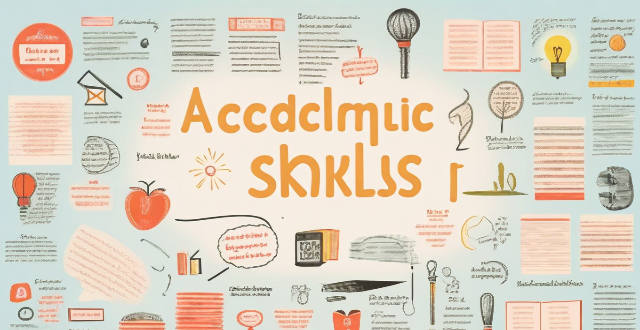
How do I improve my academic writing skills ?
Improving your academic writing skills is crucial for success in higher education. Tips include reading extensively, practicing regularly, seeking feedback, planning and organizing ideas, using appropriate language and tone, following proper formatting guidelines, and editing and proofreading carefully. By following these tips, you can enhance your writing abilities over time.
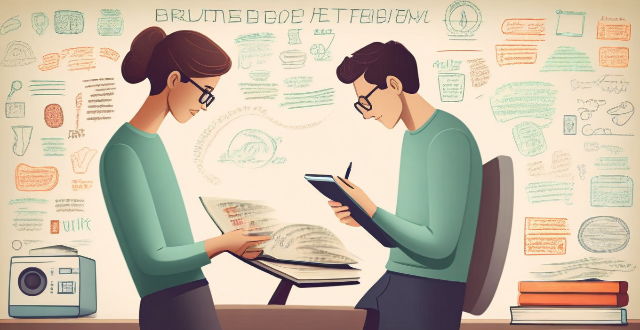
How do I make my writing more engaging and interesting to read ?
Writing is an art form that requires practice, patience, and a willingness to experiment with different techniques. To make your writing more engaging and interesting to read, consider using vivid language, telling stories, using active voice, varying sentence structure, incorporating humor, and showing rather than telling. These strategies can help bring your writing to life and keep readers interested.

Can playing sports improve one's writing skills ?
Playing sports can indirectly improve writing skills by enhancing focus, creativity, and reducing stress. It also promotes discipline, teamwork, and resilience, qualities beneficial for writing. Incorporating sports into a routine can inspire more engaged and authentic writing.

How do I structure my writing effectively ?
Effective writing structure is crucial for conveying your message clearly and engagingly. Here are some tips on how to structure your writing effectively: 1. Understand the purpose of your writing and tailor your structure accordingly. 2. Create a basic outline before you start writing, organizing your thoughts into sections such as introduction, body, and conclusion. 3. Start with an attention-grabbing opening that sets the tone for your piece and state the main idea or thesis statement clearly in the introduction. 4. Divide the body into paragraphs, each presenting a single main point, and use topic sentences to introduce each paragraph's main idea. Provide evidence or examples to support your points and maintain a logical flow between paragraphs. 5. Summarize the main points without repeating them verbatim in the conclusion, draw a conclusion based on the evidence provided, and end with a memorable closing statement or call to action. 6. Break up long sections with headings and subheadings to help readers navigate through your text easily. 7. Maintain consistency in tense, voice, and perspective, and stick to one style guide for formatting and references. 8. Review your work for clarity, coherence, and correctness, making sure each sentence contributes to the overall structure and purpose.

What are some effective techniques for improving my writing ?
Improving your writing skills involves a combination of reading, practicing, and receiving feedback. Regular reading helps in understanding different styles and techniques, while daily writing exercises such as journaling or crafting short stories enhance clarity and coherence. Grammar and vocabulary practice through exercises and learning new words are crucial. Seeking peer and professional feedback allows for constructive criticism. Revision is key, with multiple drafts and editing tools aiding in refining work. Studying writing techniques through courses and books deepens understanding. Setting writing goals, experimenting with different styles, and using writing prompts foster creativity and structured practice. Lastly, maintaining a healthy lifestyle supports mental clarity and creativity. Consistent effort and patience lead to significant improvements in writing skills over time.
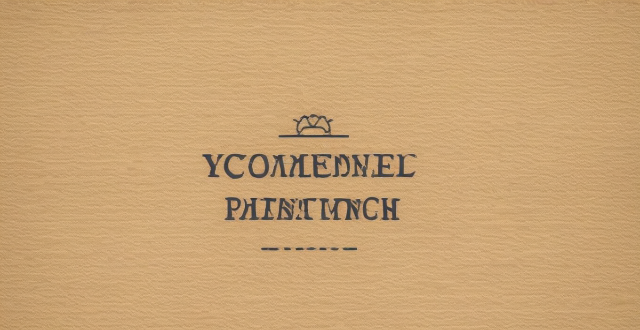
What are some common mistakes to avoid in academic writing ?
Avoid common mistakes in academic writing, such asAvoid common mistakes in academic writing, such as, lack of clarity and precision overuse of passive voice, inappropriate word choice, failure to proofread, and ignoring feedback. These pitfalls can make your writing less effective and professional. By avoiding them, you can improve the quality of your academic writing and better convey your research and ideas to your audience.

What are the key elements of academic writing ?
Academic writing is a form of writing that follows specific guidelines and conventions to ensure clarity, precision, and objectivity. Key elements of academic writing include a clear and concise title, an abstract summarizing the paper, an introduction setting the stage for the research, a literature review evaluating existing research, a methodology section describing the research design and procedures, a results section presenting the findings, a discussion interpreting the results, a conclusion summarizing the main points, and references listing sources. Appendices may also be included for supplementary materials.

What are some tips for editing and revising my writing ?
Editing and revising are crucial steps in the writing process that can significantly improve the quality of your work. Here are some tips to help you edit and revise your writing effectively: 1. Take a break from your writing to get a fresh perspective. 2. Read your writing out loud to catch awkward phrasing, grammatical mistakes, and typos. 3. Check for clarity and coherence within and between paragraphs. 4. Pay attention to sentence structure and vary sentence length to create rhythm and interest. 5. Use active voice instead of passive voice whenever possible. 6. Eliminate redundant words or phrases and be concise without sacrificing clarity or meaning. 7. Vary vocabulary by using synonyms to avoid repeating the same words. 8. Use spell-check and grammar-check tools, but also read through your work carefully to catch any errors they might miss. 9. Get feedback from someone else to spot issues you haven't noticed and offer valuable suggestions for improvement. 10. Revise your work multiple times to refine it further and make it stronger overall.

How can I improve my grammar and punctuation in writing ?
Improving grammar and punctuation skills is essential for becoming a proficient writer. Here are some tips: 1. Read widely to expose yourself to different styles of writing, grammar rules, and punctuation usage. 2. Practice active reading by analyzing sentence structure, vocabulary, grammar rules, and punctuation. 3. Write regularly to become better at using proper grammar and punctuation. 4. Get feedback from others to receive constructive criticism on your grammar and punctuation. 5. Use online tools and resources like grammar checkers, online courses, and grammar books to improve your skills. 6. Study grammar rules and punctuation guidelines focusing on parts of speech, sentence structure, and correct uses of punctuation marks. 7. Edit and revise your work thoroughly to ensure clarity, consistency, correctness, and completeness. Remember that mastering these aspects of writing takes practice and patience, so keep improving!

What are some creative ways to repurpose second-hand items ?
Repurposing second-hand items is a creative and sustainable practice that can save money and reduce waste. Here are some ideas for giving new life to pre-loved items: furniture makeover, clothing transformations, kitchenware reinvention, accessory revamps, artwork and décor, and kids' toys reimagined. By getting creative with second-hand items, we can contribute to promoting sustainability while saving money.
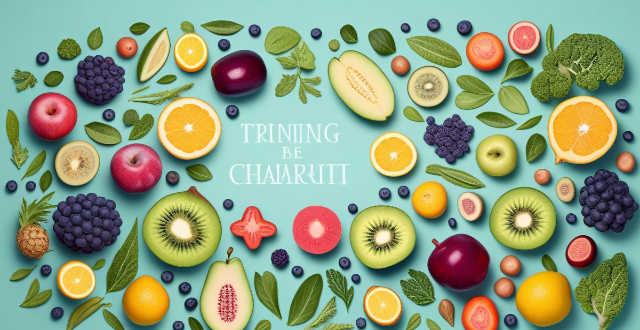
Can certain foods or dietary changes influence creative thinking ?
Creative thinking can be influenced by certain foods and dietary changes. Incorporating brain-boosting nutrients like omega-3 fatty acids, antioxidants, and vitamin B6 through foods such as salmon, blueberries, and bananas can support cognitive function. Additionally, increasing fruit and vegetable intake, opting for whole grains, staying hydrated, limiting sugar, and incorporating healthy fats can enhance creativity. A balanced diet rich in these nutrients and habits can positively impact creative thinking by providing the brain with the necessary nutrients and maintaining overall health.

How does meditation or mindfulness practice contribute to creative development ?
Meditation and mindfulness practices can significantly foster creativity by enhancing attention, increasing awareness, reducing mental clutter, promoting emotional regulation, stimulating neurological growth, fostering a growth mindset, improving sleep quality, encouraging self-reflection, providing incubation time, and enhancing collaboration. Incorporating these practices into daily routines can help individuals unlock their full creative potential, leading to personal growth and innovation in various fields.

What are some unique and creative gift ideas for Christmas ?
Unique and Creative Gift Ideas for Christmas Christmas is a time for giving, and what better way to show your loved ones how much you care than with a unique and creative gift? Here are some ideas that will make your holiday season memorable: 1. Personalized Gifts: Custom jewelry, handmade items, and DIY candles are thoughtful and elegant options that show warmth and love. 2. Experience Gifts: Adventure activities like skydiving or surfing lessons, cultural experiences such as theater tickets or cooking classes, and tech-savvy gifts like custom phone cases or smartwatches offer exciting opportunities for personal growth and enjoyment. 3. Charitable Gifts: Donations in their name to animal welfare organizations, educational fundraisers, environmental protection groups, child sponsorship programs, community gardens, or arts patronage support causes close to their heart while making a positive impact on the world. 4. Pampering Gifts: Beauty treatments like spa day passes, manicure/pedicure sets, aromatherapy kits, wellness packages such as yoga class subscriptions, juicer machines, and meditation apps promote relaxation and self-care. Remember, it's not about how much you spend but the thought and effort behind the gift that truly matters. So get creative and make this Christmas one to remember!

What are some creative ways to spend quality time with your child without using technology ?
Spending quality time with your child is crucial for their development and well-being. Here are some creative ways to do so without relying on technology: 1. Outdoor Adventures: Take nature walks or plan camping trips to explore the outdoors together. 2. Creative Activities: Encourage art projects and music making to foster creativity in your child. 3. Educational Games: Play board games that require critical thinking and work on puzzles together to improve cognitive abilities. 4. Physical Activities: Engage in sports or introduce yoga and meditation practices for physical and mental well-being. 5. Reading Together: Have storytime sessions and visit libraries regularly to foster a love for reading and learning.

Are there any particular mental exercises that can make me more creative ?
Creativity can be enhanced through various mental exercises such as brainstorming, incubation, analogical reasoning, constraints, reverse thinking, cross-disciplinary learning, physical activity, and mindfulness meditation. These techniques help generate new ideas, foster inventive solutions, and improve cognitive function. By practicing these exercises regularly, one can develop creativity and innovation skills, leading to a more imaginative and productive mindset.
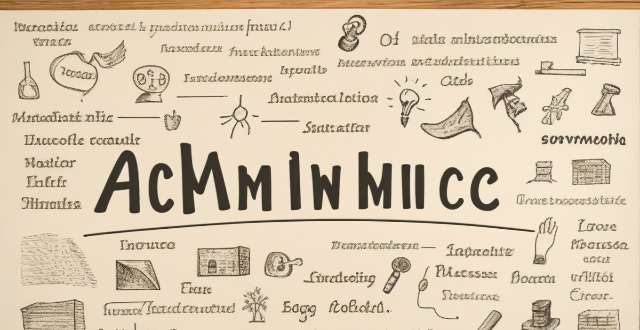
What are some tips for effective academic writing ?
Effective academic writing is essential for success in higher education. To improve your skills, understand the assignment, plan your work, conduct research, write clearly and concisely, use evidence to support arguments, edit and revise your work, follow academic integrity guidelines, use visual aids when applicable, stay focused on the main point, and seek feedback from others.

How do I cite sources in academic writing ?
The text discusses the importance of citing sources in academic writing and provides guidelines on how to do so. It emphasizes the need to choose a citation style that aligns with the requirements of the discipline or institution, use in-text citations appropriately, create a reference list or bibliography, potentially use footnotes or endnotes, and maintain consistency throughout the paper. The text also includes an example of citing sources in APA style.

What are some creative and personalized holiday gift ideas ?
The text provides creative and personalized holiday gift ideas, including personalized photo albums, DIY gift baskets, customized jewelry, homemade candles, and commissioned artwork. These gifts are thoughtful and unique, perfect for showing loved ones how much you care.

How important is it to step outside of my comfort zone for creativity growth ?
The Significance of Exiting Your Comfort Zone for Creative Growth Stepping outside of one's comfort zone is often touted as a crucial element in personal development, especially when it comes to fostering creativity. This process involves venturing into unfamiliar situations or adopting new perspectives that can be initially challenging but ultimately rewarding. In the context of creativity growth, this approach is particularly important. Why Step Out of Your Comfort Zone? Encourages New Ideas - Exposure to Diverse Experiences: Interacting with different people and environments introduces you to new ideas and ways of thinking. - Increased Flexibility: Engaging in unfamiliar activities enhances your ability to adapt and think creatively. Promotes Problem-Solving Skills - Facing Challenges: Tackling obstacles outside your comfort zone builds resilience and improves your problem-solving abilities. - Learning from Failure: Making mistakes in new contexts provides valuable lessons that fuel creative solutions. Boosts Confidence - Overcoming Fears: Conquering fears associated with new experiences can significantly boost your self-assurance. - Expanding Capabilities: As you successfully navigate unfamiliar situations, you realize your potential and become more confident in your abilities. Practical Steps to Step Out of Your Comfort Zone Try New Things - Take Up a Hobby: Start an activity you've always been curious about but never tried before. - Travel Somewhere Unfamiliar: Visit a new place where the culture, language, or landscape differs from what you're used to. Challenge Yourself - Set Ambitious Goals: Create objectives that push you beyond what you believe you are capable of achieving. - Public Performance: Perform a task in public that you normally do privately, like speaking or playing an instrument. Embrace Uncertainty - Let Go of Control: Allow events to unfold without trying to micromanage every aspect. - Open-Ended Projects: Work on projects without a clear outcome, encouraging improvisation and adaptability. Conclusion Exiting your comfort zone is not just important for creativity growth; it's essential. By embracing uncertainty, trying new things, and challenging yourself, you open the door to a wealth of creative opportunities. These experiences not only enrich your life but also expand your capacity for innovation and original thought. So, step out boldly—the rewards of leaving your comfort zone far outweigh the initial discomfort.

What are some creative ways to upcycle old clothing ?
Upcycling old clothing is a creative and sustainable way to reduce waste and give new life to your favorite outfits. In this article, we will explore some innovative ideas for upcycling old clothes that can help you save money, reduce your environmental impact, and express your unique style. One of the most common ways to upcycle old clothes is by repurposing them into new outfits. Another way to upcycle old clothes is by altering them for different occasions. If you're looking for more unconventional ways to upcycle old clothes, consider these ideas: make a tote bag, create home decor items, make pet accessories, or craft DIY beauty products. By getting creative with upcycling old clothes, you can not only save money but also contribute to a more sustainable lifestyle.

What are some creative family dinner ideas ?
Creative ways to make family dinners fun and enjoyable include themed dinner nights, cooking competitions, outdoor movie nights, story time, game night, and backyard campouts.